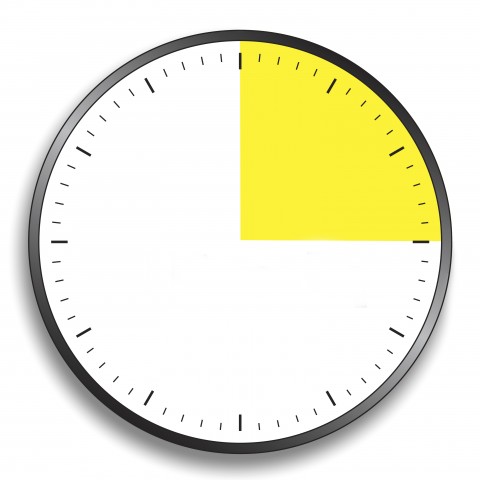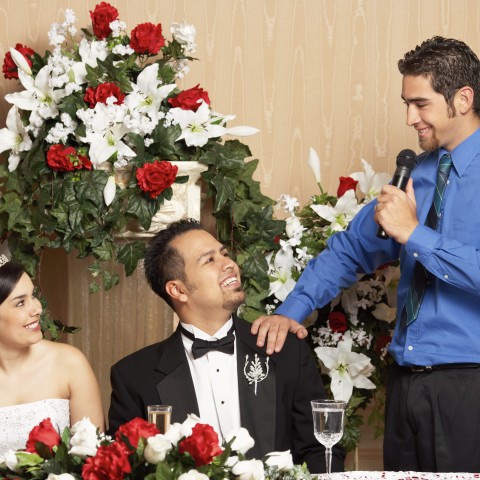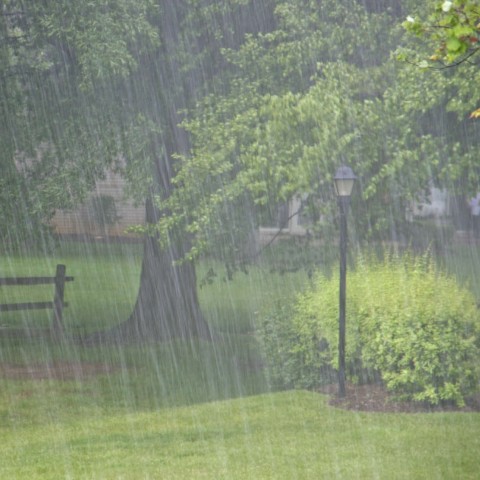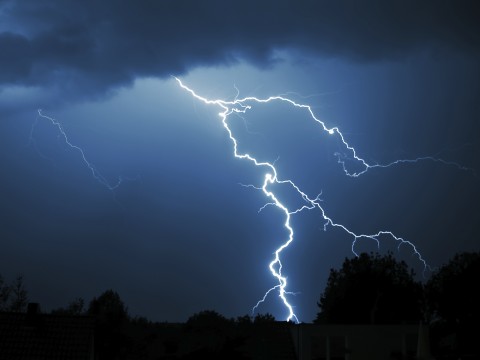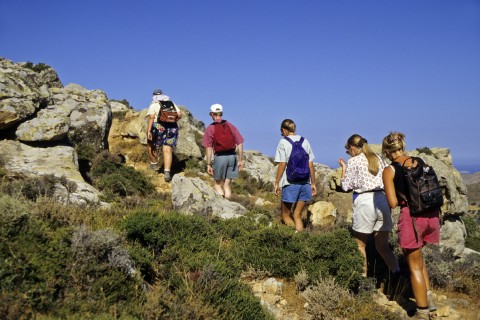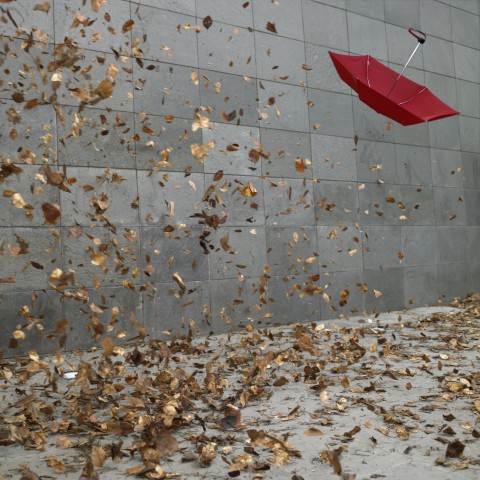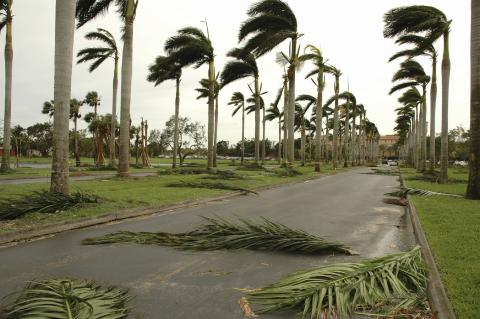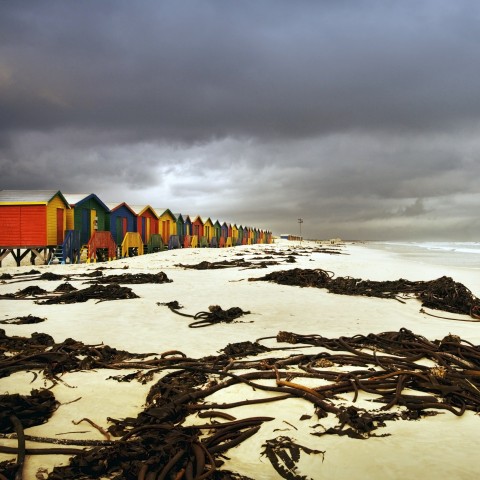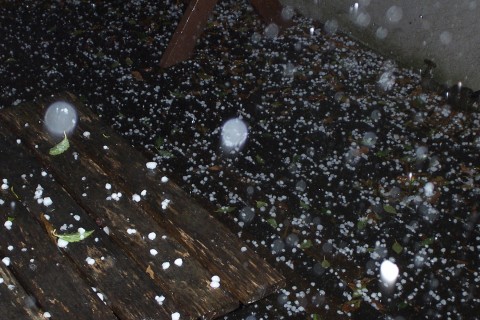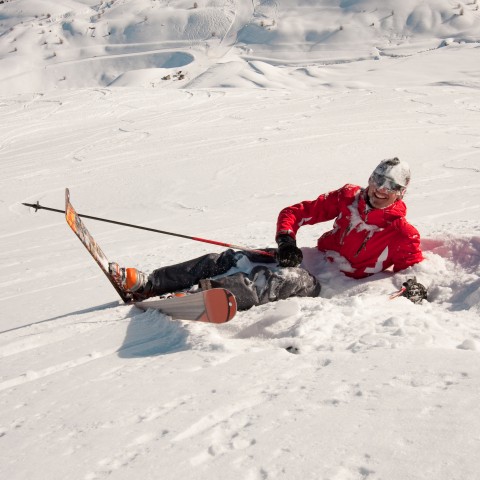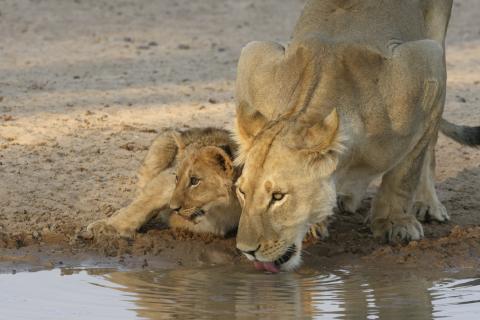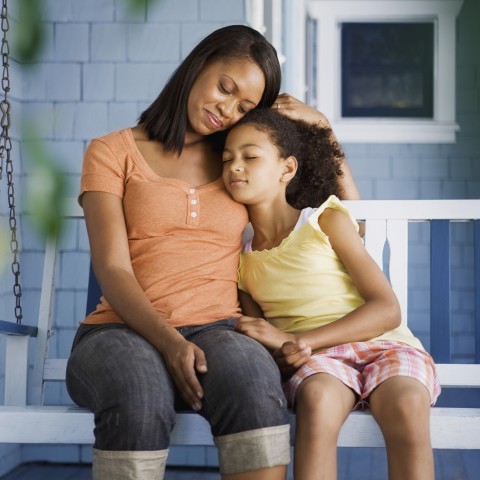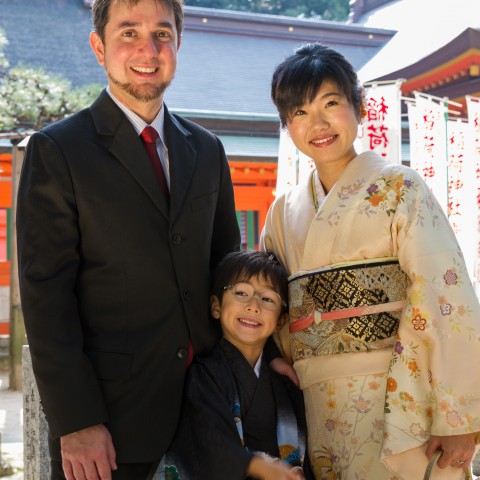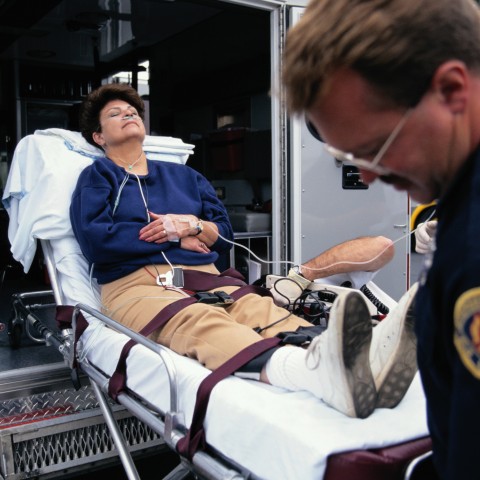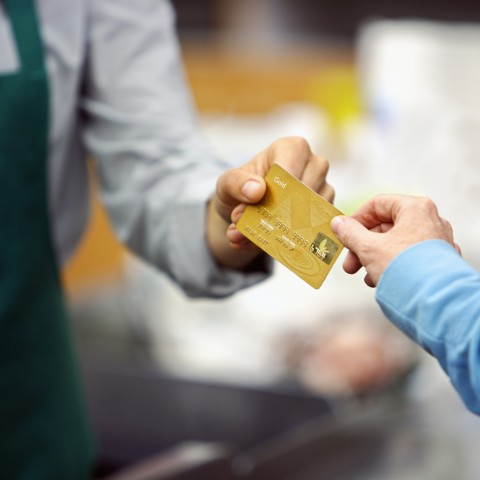
You’re learning to speak Persian, and it’s going well. Your confidence is growing! So much so that you feel ready to share your experiences on social media—in Persian.
At Learn Persian, we make this easy for you to get it right the first time. Post like a boss with these phrases and guidelines, and get to practice your Persian in the process.

1. Talking about Your Restaurant Visit in Persian
Eating out is fun, and often an experience you’d like to share. Take a pic, and start a conversation on social media in Persian. Your friend will be amazed by your language skills…and perhaps your taste in restaurants!
Bardiyaa eats at a restaurant with his friends, posts an image of the occasion, and leaves this comment:

POST
Let’s break down Bardiyaa’s post.
خیلی خوش گذشت! جای شما خالی! (kheyli khosh gozasht! jaay-e shomaa khaali)
“Had so much fun! You were missed.”
1- خیلی خوش گذشت. (kheyli khosh gozasht,)
First is an expression meaning “It was a lot of fun..”
Usually when Iranians go out for any occasion or travel somewhere, they will use this sentence upon returning to describe their pleasure of the event or trip. They also use this phrase upon leaving someone’s house upon to describe their satisfaction with the host.
2- جای شما خالی. (jaay-e shomaa khaali.)
Then comes the phrase – “You were missed..”
This phrase is said to a friend or family member who was missed at a friend or family’s gathering.
COMMENTS
In response, Bardiyaa’s friends leave some comments.
1- دوستان به جای ما. (doostaan be jaay-e maa.)
His neighbor, Bahaar, uses an expression meaning – “I’m glad you had fun there.”
This is a warm-hearted, friendly comment.
2- چرا به من خبر ندادی؟ (cheraa be man khabar nadaadi?)
His college friend, Rezaa, uses an expression meaning – “Why didn’t you let me know?”
Rezaa is being playful and frivolous.
3- همیشه خوش باشید. (hamishe khosh baashid.)
His high school friend, Shaghaayegh, uses an expression meaning – “Always be happy.”
This friend is optimistic when he comments here.
4- فضای اونجا هم خیلی رمانتیک بود. (fazaa-ye oonja ham kheyli romaantik bood.)
His girlfriend, Shabnam, uses an expression meaning – “The atmosphere was very romantic too. ”
Shabnam feels romantic and contributes to the conversation by showing her sensitivity to mood.
VOCABULARY
Find below the key vocabulary for this lesson:
خوش (khosh): “happy”
دوستان (doostaan): “friends”
چرا (cheraa): “why”
همیشه (hamishe): “always”
خالی (khaali): “empty”
رمانتیک (romaantik): “romantic”
فضا (fazaa): “space, atmosphere”
ما (maa): “we”
So, let’s practice a bit. If a friend posted something about having dinner with friends, which phrase would you use?
Now go visit a Persian restaurant, and wow the staff with your language skills!
2. Post about Your Mall Visit in Persian
Another super topic for social media is shopping—everybody does it, most everybody loves it, and your friends on social media are probably curious about your shopping sprees! Share these Persian phrases in posts when you visit a mall.
Shabnam shop with her sister at the mall, posts an image of it, and leaves this comment:

POST
Let’s break down Shabnam’s post.
یه سلفی با خواهرجان تو مرکز خرید! (ye selfi baa khaahar jaan too markaz-e kharid!)
“A selfie with my dear sister at the shopping mall!”
1- یه سلفی (ye selfi)
First is an expression meaning “A selfie.”
In Persian some words, like “selfi,” are borrowed from English.
2- با خواهرجان تو مرکز خرید (baa khaahar jaan too markaz-e kharid)
Then comes the phrase – “with my dear sister at the shopping mall.”
In Persian there are words with silent letters in them, just like the word “knight” in English. In the word خواهر, khaahar (“sister” ), the letter و, v isn’t pronounced.
COMMENTS
In response, Shabnam’s friends leave some comments.
1- چقدر آبی بهت میاد شبنم جون! (cheqadr aabi behet miyaad shabnam joon!)
Her neighbor, Bahaar, uses an expression meaning – “How good you look in blue, dear Shabnam.”
Use this expression to show you are feeling warmhearted, and compliments are always welcome!
2- چه خانومای زیبایی! (che khaanoomaa-ye zibaa-yi!)
Her boyfriend’s high school friend, Shaghaayegh, uses an expression meaning – “Very beautiful, ladies!”
He is optimistic and appreciative of the girls’ spree.
3- برای من چی گرفتی؟ (baraaye man chi gerefti?)
Her high school friend, Samiraa, uses an expression meaning – “What did you get for me? ”
This expression is humorous and Samira wants to joke around a bit.
4- یه عکس دسته جمعی هم بگیریم. (ye aks-e dastejam’i ham begirim.)
Her boyfriend, Bardiyaa, uses an expression meaning – “Let’s take a picture all (of us) together.”
Perhaps Bardiyaa is there with them?…!
VOCABULARY
Find below the key vocabulary for this lesson:
خواهر (khaahar): “sister”
آبی (aabi): “blue”
زیبا (zibaa): “beautiful”
من (man): “I”
برای (baraay-e): “for “
چی (chi): “what”
چقدر (cheghadr): “how much, how many”
دسته جمعی (daste jam’i): “all (of us) together”
So, if a friend posted something about going shopping, which phrase would you use?
3. Talking about a Sport Day in Persian
Sports events, whether you’re the spectator or the sports person, offer fantastic opportunity for great social media posts. Learn some handy phrases and vocabulary to start a sport-on-the-beach conversation in Persian.
Bardiyaa plays with his friends at the beach, posts an image of it, and leaves this comment:

POST
Let’s break down Bardiyaa’s post.
و بالاخره والیبال ساحلی! (va belakhare vaalibaal-e saaheli!)
“And finally, beach volleyball.”
1- و بالاخره (va belakhare)
First is an expression meaning “and finally.”
بالاخره, belakhare (“finally” ) is a borrowed word from Arabic.
2- والیبال ساحلی (vaalibal-e saaheli)
Then comes the phrase – “beach volleyball.”
The names of most Western sports in Iran are borrowed from English, with either the same or a slightly different pronunciation. والیبال, vaalibaal (“volleyball” ) is one of them.
COMMENTS
In response, Bardiyaa’s friends leave some comments.
1- بازم بی من! (Baazam bi man!)
His college friend, Rezaa, uses an expression meaning – “Again, without me!”
Rezaa is playfully complaining – he clearly wants to be part of the action!
2- خیلی خوش گذشت! (kheily khosh gozasht!)
His high school friend, Shaghaayegh, uses an expression meaning – “It was a lot of fun.”
This optimistic comment is a nice way to contribute to the conversation.
3- همه ی بدنم درد میکنه! (hame-ye badanam dard mikone.)
His girlfriend, Shabnam, uses an expression meaning – “My whole body is sore.”
Shabnam complains a bit – an apt comment after hard exercise!
4- یکی به من بگه اینجا چه خبره؟ (yeki be man bege injaa che khabare?)
His girlfriend’s high school friend, Samiraa, uses an expression meaning – “Someone tell me what’s going on in here?”
Perhaps Samiraa is upset because she wasn’t invited?…!
VOCABULARY
Find below the key vocabulary for this lesson:
والیبال (vaalibaal): “volleyball”
بازم(باز هم) (baazam (baaz ham)): “again”
خیلی (kheyli): “very”
درد (dard): “pain, soreness, sore”
خبر (khabar): “news”
اینجا (injaa): “here, in here”
گذشتن (gozashtan): “pass”
بدنم (badanam): “my body”
Which phrase would you use if a friend posted something about sports?
But sport is not the only thing you can play! Play some music, and share it on social media.
4. Share a Song on Social Media in Persian
Music is the language of the soul, they say. So, don’t hold back—share what touches your soul with your friends!
Shabnam shares a song she just heard at a party, posts an image of the artist, and leaves this comment:

POST
Let’s break down Shabnam’s post.
اینو گوش بدید. شگفت انگیزه. (in-o goosh bedid, shegeft angize.)
“Listen to this. It’s amazing.”
1- اینو[(این رو)/(این را)] گوش بدید(بدهید). (Ino[(in ro)/(in raa)] goosh bedid(goosh bedahid) )
First is an expression meaning “Listen to this.”
گوش بدید, goosh bedid, (“listen” ) literally means “give your ear.” This is similar to “listen” in English.
2- شگفت انگیزه ( شگفت انگیز است). (Shegeft angize (shegeft angiz ast).)
Then comes the phrase – “It’s amazing / It’s wonderful.”
شگفت , Shegeft, (“Surprise” ) + انگیز , angiz, (“Exciting,” “stimulating” ) = شگفت انگیز, shegeft angiz. Literally this means “exciting and surprising.” The closest translation in English would be “wonderful” or “amazing.”
COMMENTS
In response, Shabnam’s friends leave some comments.
1- این آهنگ عروسی عمه ام بود. (in aahang-e aroosi-ye amme-am bood.)
Her high school friend, Samiraa, uses an expression meaning – “It was my aunty’s wedding song.”
Samiraa is contributing to the conversation by sharing a personal detail.
2- مرسی شبنم جون! (mersi shabnam joon!)
Her boyfriend’s high school friend, Shaghaayegh, uses an expression meaning – “Thanks, dear Shabnam!”
This optimistic comment shows appreciation.
3- نمی تونم دانلودش کنم. (nemitoonam daanlodesh konam.)
Her college friend, Rezaa, uses an expression meaning – “I can’t download it.”
Rezaa is experiencing problems – perhaps someone can help her?
4- خیلی شاده. مرسی عزیزم! (kheyli shaade. mersi azizam!)
Her neighbor, Bahaar, uses an expression meaning – “So upbeat. Thanks, honey.”
This friendly, appreciative comment shows what Bahaar thinks of the song.
VOCABULARY
Find below the key vocabulary for this lesson:
شگفت انگیز (shegeft angiz): “amazing”
عروسی (aroosi): “wedding”
مرسی (mersi): “Thanks!”
توانستن (tavaanestan): “can, be able to”
عزیز (aziz): “dear, darling, babe”
این (in): “this”
آهنگ (aahang): “song”
عمه (amme): “aunt (father’s sister)”
Which song would you share? And what would you say to a friend who posted something about sharing music or videos?
Now you know how to start a conversation about a song or a video on social media!
5. Persian Social Media Comments about a Concert
Still on the theme of music—visiting live concerts and shows just have to be shared with your friends. Here are some handy phrases and vocab to wow your followers in Persian!
Bardiyaa goes to a concert, posts an image of it, and leaves this comment:

POST
Let’s break down Bardiyaa’s post.
بازهم پخش صدای سالن کنسرت خوب نبود. (baaz ham pakhsh-e sedaa-ye saalon-e konsert khoob nabood.)
“Again, the concert hall’s sound system wasn’t good.”
1- بازهم پخش صدای سالن (baaz ham pakhsh-e sedaay-e saalon)
First is an expression meaning “Again the concert hall’s sound system.”
Sound system can be translated to Persian as سیستم پخش صدا , system-e pakhsh-e sedaa, or just پخش صدا pakhshe sedaa, which is “sound distributing.”
2- خوب نبود. (khoob nabood)
Then comes the phrase – “was not good..”
خوب نبود, khoob nabood, (“was not good” ). It’s used the same way as in English.
COMMENTS
In response, Bardiyaa’s friends leave some comments.
1- خوب شد ما ردیف سوم بودیم. (khoob shod maa radif-e sevvom boodim.)
His college friend, Rezaa, uses an expression meaning – “It was good that we were in the third row.”
Rezaa agrees with Bardiyaa about the sound, but he looks for the silver lining around the dark cloud – at least they could hear the music!
2- حیف! (heif!)
His supervisor, Mohammad, uses an expression meaning – “What a pity!”
This is a slightly old-fashioned but still appropriate comment of commiseration with their plight.
3- البته من خیلی پشیمون نیستم چون بلیط کنسرت گرون نبود! (albate man kheyli pashimoon nistam chon belit-e konsert geroon nabood!)
His high school friend, Shaghaayegh, uses an expression meaning – “I don’t regret it much though, because the concert ticket wasn’t expensive!”
This is an optimistic expression.
4- دارم فکر میکنم کی میخوان پخش صدای سالن کنسرت رو درست کنن. (daaram fekr mikonam key mikhaan pakhsh-e sedaa-ye saalon-e konsert ro dorost konan.)
His girlfriend’s nephew, Sinaa, uses an expression meaning – “I’m wondering when they’re going to fix the concert hall’s sound system.”
Sinaa is not feeling very positive here, is he?
VOCABULARY
Find below the key vocabulary for this lesson:
سالن (saalon): “hall”
بازهم (baaz ham): “again”
پخش صدا (paksh-e sedaa): “sound distribution”
شدن (shodan): “become, get”
ردیف (radif): “row”
پشیمان بودن (pashimaan boodan): “regret”
جدید (jadid): “new”
درست کردن (dorost kardan): “fix”
If a friend posted something about a concert , which phrase would you use?
6. Talking about an Unfortunate Accident in Persian
Oh dear. You broke something by accident. Use these Persian phrases to start a thread on social media. Or maybe just to let your friends know why you are not contacting them!
Shabnam accidentally breaks her mobile phone, and leaves this comment:

POST
Let’s break down Shabnam’s post.
آیفونم افتاد و شکست. (aayfonam oftaad-o shekast.)
“My iPhone fell and broke.”
1- آیفونم افتاد (aayfonam oftaad)
First is an expression meaning “My iPhone fell.”
افتاد, oftaad, (“fell” ) is the past tense of the verb افتادن, oftaadan, (“to fall” ), conjugated in the third person singular.
2- و شکست. (va shekast.)
Then comes the phrase – “and broke..”
شکست, shekast, (“broke” ) is the past tense of the verb , شکستن, shekastan, (‘to break” ), conjugated in the third person singular.
COMMENTS
In response, Shabnam’s friends leave some comments.
1- وااااای، نه، کی اینجوری شد؟ (vaaaaay, na, key injoori shod?)
Her neighbor, Bahaar, uses an expression meaning – “Oh, no. When did it happen?”
Warm-hearted Bahaar is showing her empathy with Shabnam’s situation.
2- دختر بی حواس! (dokhtar-e bi-havaas!)
Her high school friend, Samiraa, uses an expression meaning – “Careless girl!”
Samiraa chooses to lightly tease and make fun of her friend.
3- ناراحت نباش، آیفون ۷ میگیری! (naaraahat nabaash, aayfon-e seven migiri.)
Her boyfriend’s high school friend, Shaghaayegh, uses an expression meaning – “Don’t be upset; you’ll get an iPhone 7.”
Shaghaayegh is optimistic that this unfortunate accident could turn out well for Shabnam.
4- دفعه ی اولت نیست !(daf’e-ye avvalet nist!)
Her college friend, Rezaa, uses an expression meaning – “It’s not your first time!”
Rezaa needs to remind Shabnam of a previous accident – not sure how this makes anything easier on Shabnam! Perhaps she’s being frivolous?
VOCABULARY
Find below the key vocabulary for this lesson:
آیفون (aayfon): “iPhone”
کی (Kei): “when”
دختر (dokhtar): “girl”
ناراحت شدن (naaraahat shodan): “be upset”
گرفتن (gereftan): “get, buy”
بی حواس (bihavaas): “careless, absent-minded”
وای (vaay): “ohhh, oops”
دفعه (daf’e): “time”
If a friend posted something about having broken something by accident, which phrase would you use?
So, now you know how to describe an accident in Persian. Well done!
7. Chat about Your Boredom on Social Media in Persian
Sometimes, we’re just bored with how life goes. And to alleviate the boredom, we write about it on social media. Add some excitement to your posts by addressing your friends and followers in Persian!
Bardiyaa gets bored at home, and leaves this comment:

POST
Let’s break down Bardiyaa’s post.
یه جمعهٔ بارونیه و من کسلم . (ye jom’e-ye baarooni-ye-o man keselam.)
“It’s a rainy Friday and I’m weary.”
1- یه (یک) جمعهٔ بارونیه (بارانی است) (ye (yek) jom’e-ye baarooniye (baaraani ast) )
First is an expression meaning “It’s a rainy Friday.”
جمعه , jom’e (“Friday” ) is an off day in Iran. On Fridays, people go out and spend time with friends, family, or join an activity. But if it rains, they prefer to stay at home. So جمعهٔ بارونی , jom’e-ye barooni, (‘rainy Friday’ ) is synonymous with “a boring day”.
2- و من کسلم (کسل هستم). (va man keselam(kesel hastam).)
Then comes the phrase – “and I’m weary..”
کسل بودن kesel boodan, (“to be weary”, “to be bored” ). کسل, kesel, is an Arabic word. كسالت داشتن, kesaalat daashtan, (“to have an illness,” “to be sick” ) is a fairly formal and honorific term. كسل, kesel, (“sick,” “weary,” “lazy,” “slothful” ) is an adjective, and كسالت, kesaalat, (“sickness,” “laziness,” “weariness,” “boredom” ) is the noun form of the adjective.
COMMENTS
In response, Bardiyaa’s friends leave some comments.
1- دوست داری بریم بیلیارد بازی کنیم؟ (doost dari berim bilyaard baazi konim?)
His college friend, Rezaa, uses an expression meaning – “Would you like to go play pool?”
Rezaa proposes a solution – well done!
2- صدای بارون رو خیلی دوست دارم. (sedaa-ye baaroon ro kheyli doost daaram.)
His girlfriend, Shabnam, uses an expression meaning – “I love the sound of rain.”
Shabnam is sensitive to the mood again, pointing out something positive about the weather.
3- بارون بند اومد! (baaroon band oomad.)
His high school friend, Shaghaayegh, uses an expression meaning – “Rain, let up!”
This is not a negative statement, but an upbeat comment to order the weather!
4- وقت خوبیه برای انجام پروژه ی کلاسیتون! (vaqt-e khoobi-ye baraay-e anjaam-e prozhe-ye kelaasi-toon!)
His supervisor, Mohammad, uses an expression meaning – “It’s a good time to do your class project!”
The voice of authority, Mohammad feels the need to give advice with a slightly old-fashioned comment.
VOCABULARY
Find below the key vocabulary for this lesson:
بارونی (بارانی) (baarooni (baaraani)): “rainy”
بیلیارد (bilyaard): “pool (the game)”
جمعه (jom’e): “Friday”
بند آمدن (band aamadan): “let up, stop”
وقت (vaqt): “time”
انجام (anjaam): “doing, carrying out”
بازی کردن (baazi kardan): “play”
پروژه (prozhe): “project”
If a friend posted something about being bored, which phrase would you use?
Still bored? Share another feeling and see if you can start a conversation!
8. Exhausted? Share It on Social Media in Persian
Sitting in public transport after work, feeling like chatting online? Well, converse in Persian about how you feel, and let your friends join in!
Shabnam feels exhausted after a long day at work, posts an image of herself looking tired, and leaves this comment:

POST
Let’s break down Shabnam’s post.
پایان یک روز شلوغ و خسته کننده! (paayaan-e yek rooz-e sholoogh va khaste konande!)
“The end of a busy and tiring day.”
1- پایان (paayaan-e)
First is an expression meaning “The end of.”
پایان , paayaan means “the end,” but when we use it in a phrase we add “e” at the end of it. پایان , Paayaan-e means “the end of ….”
2- یک روز شلوغ و خسته کننده! (yek rooz-e shooloogh va khaste konande)
Then comes the phrase – “a busy and tiring day.”
خسته کننده, khaste konande, (“tiring,” “exhausting” ) can be caused by hard labor or mental work, or because of a slow and unproductive day.
COMMENTS
In response, Shabnam’s friends leave some comments.
1- خدا قوت! (khodaa ghov-vat!)
Her neighbor, Bahaar, uses an expression meaning – “God give you strength!”
A warm-hearted wish!
2- خسته نباشی! (khaste nabaashi!)
Her college friend, Rezaa, uses an expression meaning – “I hope you’re not tired/Hope you are well”
Another positive wish, Rezaa is being a good friend.
3- شبنم میام دنبالت بریم کافه. (shabnam miyaam donbaalet berim kaafe.)
Her boyfriend, Bardiyaa, uses an expression meaning – “Shabnam, I’ll pick you up (on my way) to the cafe.”
What a supportive boyfriend! Bardiyaa feels determined to help her.
4- امیدوارم امشب خوب بخوابی! (omidvaaram emshab khoob bekhaabi!)
Her boyfriend’s high school friend, Shaghaayegh, uses an expression meaning – “I hope you sleep well tonight!”
Another positive, optimistic wish for the tired lady.
VOCABULARY
Find below the key vocabulary for this lesson:
پایان (paayaan): “end”
خدا (khodaa): “God”
شلوغ (sholoogh): “busy, crowded”
کافه (kaafe): “cafe”
خسته کننده (khaste konande): “tiring, exhausting”
قوت (ghov-vat): “strength”
خوب خوابیدن (khoob khaabidan): “sleep well, sleep tight”
شب (shab): “night”
If a friend posted something about being exhausted, which phrase would you use?
Now you know how to say you’re exhausted in Persian! Well done.
9. Talking about an Injury in Persian
So life happens, and you manage to hurt yourself during a soccer game. Very Tweet-worthy! Here’s how to do it in Persian.
Bardiyaa suffers a painful injury, posts an image of his knee, and leaves this comment:

POST
Let’s break down Bardiyaa’s post.
زانوی راستم آسیب دیده. (zaanooy-e raastam aasib dide.)
“My right knee is injured. ”
1- زانوی راستم (zaanoo-ye raastam)
First is an expression meaning “My right knee.”
زانو, zaanoo, (“knee” ) +ی, ye + راست, raast, (“right” ) + م, am, (“my” ) = “my right knee.” In Persian, the adjective comes after the noun. And since the first word in this phrase ends in ‘و’, oo, we need a linking ی, ye, to ease the pronunciation.
2- آسیب دیده (دیده است). (aasib dide(dide ast). )
Then comes the phrase – “has been injured..”
آسیب , aasib, (“damage,” “injury” ) + دیده, dide, (“has seen” ) = آسیب دیده , aasib dide. Literally it means “has seen damage.” It can be translated to “has/have been injured,” “has/have been damaged.”
COMMENTS
In response, Bardiyaa’s friends leave some comments.
1- خیلی درد میکنه؟ (kheyli dard mikone?)
His neighbor, Bahaar, uses an expression meaning – “Does it hurt a lot?”
Warm-hearted Bahaar expresses concern.
2- پس برنامه کوه این هفته کنسله؟ (pas barnaame-ye kooh-e in hafte kansele?)
His college friend, Rezaa, uses an expression meaning – “So this week’s mountain climbing plans are cancelled?”
Rezaa points out an unfortunate consequence of this injury.
3- فکر کنم حالا حالاها خوب نشه. (fekr konam haalaa haalaa-haa khoob nashe.)
His girlfriend’s nephew, Sinaa, uses an expression meaning – “I suppose it’s not going to get well for a very long time.”
Sinaa is not feeling very optimistic about this, is he?
4- امیدوارم زود خوب شی! (omidvaaram zood khoob-shi!)
His high school friend, Shaghaayegh, uses an expression meaning – “I hope you get well soon!”
Shaghaayegh is leaves a friendly, optimistic wish.
VOCABULARY
Find below the key vocabulary for this lesson:
زانو (zaanoo): “knee”
هفته (hafte): “week”
آسیب (aasib): “injury, damage”
درد کردن (dard): “hurt, be painful”
برنامه (barnaame): “plan, program”
کنسل (kansel): “canceled”
حالا حالا ها (haalaa haalaa haa): “yet, still, long way to go”
خوب شدن (khoob shodan): “get well, recover”
If a friend posted something about being injured, which phrase would you use?
We love to share our fortunes and misfortunes; somehow that makes us feel connected to others.
10. Starting a Conversation Feeling Disappointed in Persian
Sometimes things don’t go the way we planned. Share your feelings about this with your friends!
Shabnam feels disappointed about today’s weather, posts an appropriate image of the rain, and leaves this comment:

POST
Let’s break down Shabnam’s post.
انگار این بارون نمی خواد بند بیاد. (engaar in baaroon nemikhaad band biaad.)
“Looks like this rain doesn’t want to let up.”
1- این بارون (باران) (in baraoon (baaraan))
First is an expression meaning “This rain.”
بارون , baaroon, (“rain” ) is the colloquial form of باران, baaraan. In spoken Persian, you see this pattern a lot.
2- انگار نمی خواد (نمی خواهد) بند بیاد (بیاید). (engaar nemikhaad (nemikhaahad) band biyaad (biyaayad).)
Then comes the phrase – “Looks like it does not want to stop..”
انگار, engaar, (“looks like,” “it seems” ). گویا , gooyaa, is its formal synonym, which can be translated to “as if” in English. انگار, engaar, is the present tense of the verb انگاریدن, engaaridan, (“to imagine,” “to assume,” “to think” ).
COMMENTS
In response, Shabnam’s friends leave some comments.
1- دلم برای روزهای آفتابی تنگ شده. (delam baraa-ye rooz-haa-ye aaftaabi tang shode.)
Her neighbor, Bahaar, uses an expression meaning – “I miss sunny days.”
Bahaar shares a personal detail – a great way to keep a conversation going!
Her nephew, Sinaa, uses an expression meaning – “A pity we can’t go shopping.”
Sinaa is feeling disappointed too but for a different reason.
3- پرده ها رو بکش، بشین، و یه فیلم تماشا کن. (parde-haa ro bekesh, beshin, va ye film tamaashaa kon.)
Her boyfriend, Bardiyaa, uses an expression meaning – “Close the curtains, sit down, and watch a movie!”
Bardiyaa gives advice to cheer up her spirit.
4- هواشناسی گفت از فردا هوا آفتابی میشه. (havaa shenaasi goft az fardaa havaa aaftaabi mishe.)
Her boyfriend’s high school friend, Shaghaayegh, uses an expression meaning – “Weather forecast said it’ll be sunny tomorrow.”
Shaghaayegh is optimistic that the weather will change!
VOCABULARY
Find below the key vocabulary for this lesson:
این (in): “this”
دل کسی برای چیزی تنگ شدن (del-e kasi baraay-e chizi tang shodan): “miss something”
خرید (kharid): “shopping”
فیلم (film): “movie, film”
فردا (fardaa): “tomorrow”
هواشناسی (سازمان هواشناسی) (havaa shenaasi): “weather forecast (Meteorological Organization)”
هوا (havaa): “weather, air”
تماشا کردن (tamaashaa kardan): “watch, see”
How would you comment in Persian when a friend is disappointed?
Not all posts need to be about a negative feeling, though!
11.Talking about Your Relationship Status in Persian
Don’t just change your relationship status in Settings, talk about it!
Bardiyaa changes his status to “In a relationship”, posts an image of him and Shabnam together, and leaves this comment:

POST
Let’s break down Bardiyaa’s post.
با داشتن شبنم من خوشبخت ترین مرد روی زمینم. (baa daashtan-e shabnam man khoshbakht tarin mard-e roo-ye zaminam.)
“Being with Shabnam makes me the most fortunate man on the earth.”
1- با داشتن شبنم (baa daashtan-e shabnam)
First is an expression meaning “Being with Shabnam.”
داشتن, daashtan, (“having” ) is the gerund form of the verb “to have.” Here داشتن means “Being with someone”.
2- من خوشبخت ترین مرد روی زمینم (زمین هستم). (man khoshbakht tarin mard-e roo-ye zaminam (zamin hastam). )
Then comes the phrase – “I’m the most fortunate man on the earth.”
خوشبخت ترین, khoshbakht tarin, (“the most fortunate” ). خوشبخت , khoshbakht, (“fortunate” ) + ترین, tarin, (“the most…”/ “the…est” ). Making a superlative adjective is easy in Persian. Just add tarin to the adjective. شادترین, shaad tarin, (“the happiest” ), سردترین, sard tarin, (“the coldest” ).
COMMENTS
In response, Bardiyaa’s friends leave some comments.
1- چه خبر خوبی! (che khabar-e khoobi!)
His high school friend, Shaghaayegh, uses an expression meaning – “Such a good news!”
This is a positive, optimistic comment which is very appropriate for the occasion.
2- تو زندگی منی! (to zendegi-ye mani!)
His girlfriend, Shabnam, uses an expression meaning – “You’re my life!”
Shabnam expresses her deep devotion with this comment.
3- مبارک باشه! (mobaarak baashe!)
His college friend, Rezaa, uses an expression meaning – “Congratulations!”
Rezaa is feeling optimistic and happy for the couple.
4- شما دوتا برای همدیگه ساخته شدید! (shomaa do taa baraaye hamdige saakhte shodid.)
His neighbor, Bahaar, uses an expression meaning – “You two were made for each other!”
This is clearly a good match – everyone is happy about it!
VOCABULARY
Find below the key vocabulary for this lesson:
زمین (zamin): “the earth”
داشتن (daashtan): “to have/ having”
زندگی (zendegi): “life”
شما (shomaa): “you (second person plural)”
مبارک بودن (mobaarak boodan): “(lit.) wish to be happy and blessed”
من (man): “my, I”
همدیگه (همدیگر) (hamdige (hamdigar)): “each other, one another”
ساخته شدن (saakhte shodan): “be made”
What would you say in Persian when a friend changes their relationship status?
Being in a good relationship with someone special is good news – don’t be shy to spread it!
12. Post about Getting Married in Persian
Wow, so things got serious, and you’re getting married. Congratulations! Or, your friend is getting married, so talk about this in Persian.
Shabnam is getting married today, so she leaves this comment:

POST
Let’s break down Shabnam’s post.
برای همهٔ شما عشق آرزو می کنم! (baraaye hame-ye shomaa eshgh aarezoo mikonam!)
“I wish love for all of you!”
1- برای همهٔ شما (baraaye hame-ye shomaa)
First is an expression meaning “For all of you.”
برای همهٔ شما , baraay-e hame-ye shomaa, (“for all of you” ). In this phrase, the word order is the same in Persian as it is in English. However, this clause comes before the verb clause in Persian.
2- عشق آرزو می کنم. (eshgh aarezoo mikonam)
Then comes the phrase – “I wish love.”
آرزو می کنم, aarezoo mikonam, (“I wish” ). The direct object, عشق, eshgh, (“love” ) comes before the verb.
COMMENTS
In response, Shabnam’s friends leave some comments.
1- مبارک باشه! براتون آرزوی خوشبختی میکنم! (mobaarak baashe! baraatoon aarezoo-ye khosh bakhti mikonam!)
Her neighbor, Bahaar, uses an expression meaning – “Congratulations! I wish you happiness!”
This is a common, warmhearted wish.
2- من هنوز امیدوارم که عروس بعدی من هستم! (man hanooz omidvaaram ke aroos-e ba’di man hastam.)
Her high school friend, Samiraa, uses an expression meaning – “I still hope that I’m the next bride!”
Samiraa expresses a personal hope, always a good contribution to the conversation.
3- ازدواجتان مبارک! (ezdevaajetaan mobaarak!)
Her supervisor, Mohammad, uses an expression meaning – “Happy married life!”
A common and somewhat old-fashioned well-wish, this still serves its good purpose.
4- زیباترین عروس و شیک ترین داماد! (zibaa-tarin aroos va shik-tarin daamaad!)
Her husband’s high school friend, Shaghaayegh, uses an expression meaning – “The most beautiful bride and the most stylish groom!”
Shaghaayegh is feeling optimistic and happy for the couple, thinking they are looking gorgeous.
VOCABULARY
Find below the key vocabulary for this lesson:
عشق (eshgh): “love”
خوشبخت (khoshbakht): “fortunate, blessed, happy “
آرزو کردن (aarezoo kardan): “wish”
امیدوار (omidvaar): “hopeful”
عروس (aroos): “bride”
داماد (daamaad): “groom”
زیبا (zibaa): “beautiful”
شیک (shik): “stylish, dapper”
How would you respond in Persian to a friend’s post about getting married?
For the next topic, fast forward about a year into the future after the marriage…
13. Announcing Big News in Persian
Wow, huge stuff is happening in your life! Announce it in Persian.
Bardiyaa finds out he and his wife are going to have a baby, posts an image of them together, and leaves this comment:

POST
Let’s break down Bardiyaa’s post.
به زودی پدر میشم. (be zoodi pedar misham)
“I’ll become a father soon”
1- به زودی (be zoodi)
First is an expression meaning “Soon.”
به زودی, be zoodi, (“soon” ) is used exactly as it is used in English.
2- پدر میشم (میشوم) . (pedar misham(mishavam))
Then comes the phrase – “I’ll become a father.”
پدر میشم, pedar misham, (“I’ll become a father” ). میشم, misham, is the colloquial form of میشوم, mishavam. The v is dropped to ease the pronunciation.
COMMENTS
In response, Bardiyaa’s friends leave some comments.
1- اگردختر بود اسمشو بذارید سمیرا! (agar dokhtar bood esmesho bezaarid samiraa.)
His wife’s high school friend, Samiraa, uses an expression meaning – “If it’s a girl, name her Samiraa!”
Samiraa is in a mood to joke around a bit.
2- مبارک باشه! بچهها زندگی تون رو شیرین تر میکنن. (mobaarak baashe bache-haa zendegi-toon ro shirin-tar mikonan.)
His high school friend, Shaghaayegh, uses an expression meaning – “Congratulations! Kids make your life sweeter.”
A solid congratulation with a lovely opinion about children.
3- الان خوب بخواب، شاید این آخرین شانست در چند سال آینده باشه! (alaan khoob bekhaab, shaayad in aakharin shaanset dar chand saal-e aayande baashe!)
His nephew, Sinaa, uses an expression meaning – “Sleep well now; it might be your last chance for the next few years!”
Sinaa is bringing reality to the conversation, which is nevertheless not inappropriate!
4- تبریک میگم! براتون سلامتی و شادی آرزو میکنم! (tabrik migam! baraatoon salaamati va shaadi aarezoo mikonam!)
His neighbor, Bahaar, uses an expression meaning – “Congratulations! I wish you health and happiness!”
A common, friendly wish.
VOCABULARY
Find below the key vocabulary for this lesson:
پدر (pedar): “father”
اسم گذاشتن (esm gozaashtan): “name”
شیرین (shirin): “sweet”
بچه (bach-che): “kid, baby”
آخر (aakhar): “last”
سلامتی (salaamati): “health”
به زودی (be zoodi): “soon”
شادی (shaadi): “happiness”
Which phrase would you choose when a friend announces their pregnancy on social media?
So, talking about a pregnancy will get you a lot of traction on social media. But wait till you see the responses to babies!
14. Posting Persian Comments about Your Baby
Your bundle of joy is here, and you cannot keep quiet about it! Share your thoughts in Persian.
Shabnam plays with her baby, posts an image of the cherub, and leaves this comment:

POST
Let’s break down Shabnam’s post.
فریبای زیبای ما! (faribaa-ye zibaa-ye maa!)
“Our beautiful Fariba!”
1- فریبای زیبای (faribaa-ye zibaa-ye)
First is an expression meaning “Beautiful Fariba.”
فریبای زیبا, Faribaa-ye zibaa, (“beautiful Fariba” ) . Because the first word ends in “ا”, aa, we need the linking ی, ye, to ease the pronunciation.
2- ما (maa)
Then comes the phrase – “we / our / us .”
maa, (“we” / “our”/ “us” ). Depending on the context it means we , our or us. Examples: ما میرویم, maa miravim, (“we go” ), کشور ما , keshvar-e maa, (“our country” ), برای ما , baraaye maa, (“for us” ).
COMMENTS
In response, Shabnam’s friends leave some comments.
1- قدم نورسیده مبارک! (ghadam-e noreside mobaarak!)
Her neighbor, Bahaar, uses an expression meaning – “May the arrival of your newborn be blessed!”
Bahaar pronounces a positive blessing over the newcomer.
2- امیدوارم قدش از بردیا بلندتر نشه! (omidvaaram ghad-desh az bardiyaa bolandtar nashe.)
Her nephew, Sinaa, uses an expression meaning – “I hope she won’t get taller than Bardia.”
Sinaa is hoping for a short addition to the family, which is just a way of making conversation.
3- تبریک! (Tabrik!)
Her supervisor, Mohammad, uses an expression meaning – “Congratulations!”
Old-fashioned but still a good comment to leave.
4- چه خوش خنده! ماشاالله! (che khosh khande! maashaa’al-laah!)
Her husband’s high school friend, Shaghaayegh, uses an expression meaning – “What a cheerful laugh! Masha Allah (“God has willed it!,” expression of amazement and admiration)!”
This is a positive comment on the baby’s laugh, and by announcing that (presumably) the baby’s birth was God’s will, Shaghaayegh shows his amazement and admiration.
VOCABULARY
Find below the key vocabulary for this lesson:
ما (maa): “we, our, us”
قدم (ghadam): “step, foot (here it means “the arrival” )”
نو رسیده (no reside): “newborn”
تبریک (tabrik): “Congratulations! “
خنده (khande): “laughter, laugh”
قد (ghad): “height”
بلند (boland): “tall, high”
ماشاالله (maashaa’allaah): “God has willed it! (expression of amazement and admiration)”
If your friend is the mother or father, which phrase would you use on social media?
Congratulations, you know the basics of chatting about a baby in Persian! But we’re not done with families yet…
15. Persian Comments about a Family Reunion
Family reunions – some you love, some you hate. Share about it on your feed.
Bardiyaa goes to a family gathering, posts an image of the event, and leaves this comment:

POST
Let’s break down Bardiyaa’s post.
مهمانی خانوادگی و غذاهای خوشمزه! (mehmaani-ye khaanevaadegi va ghazaa-haa-ye khoshmazze!)
“Family party and delicious dishes!”
1- مهمانی خانوادگی (mehmaani-ye khaanevaadegi)
First is an expression meaning “Family party.”
مهمانی خانوادگی , mehmaani-ye khaanevaadegi, (” family party” / “family reunion” ) are very common in Iran. Relatives are very important as well as the immediate family members. Family reunions always come with good food and talking about social and political issues.
2- و غذاهای خوشمزه (va ghazaahaa-ye khoshmazze)
Then comes the phrase – “and delicious dishes.”
خوشمزه, khoshmazze, (“delicious,” “yummy” ) is made up of two words. خوش , khosh (“good,” “pleasant” ) + مزه , mazze (“taste,” “flavor” ) = خوشمزه, khoshmazze, (“delicious” )
COMMENTS
In response, Bardiyaa’s friends leave some comments.
1- دستپخت شبنم عالیه! (dastpokht-e shabnam aaliye!)
His neighbor, Bahaar, uses an expression meaning – “Shabnam’s cooking is great!”
A warmhearted comment that’s also a compliment.
2- بهترین لحظه ها را با عزیزانم داشتم! (behtarin lahzeh haa raa baa azizanam daashtam!)
His wife, Shabnam, uses an expression meaning – “I had the best moments with my loved ones!”
Shabnam feels grateful and appreciative of her family.
3- هیچ چیز با ارزش تر از یک جمع گرم خانوادگی نیست! (hich chiz baa-arzesh-tar az yek jam’e garm-e khaanevaadegi nist!)
His high school friend, Shaghaayegh, uses an expression meaning – “There’s nothing more valuable than a warm family gathering!”
Another positive expression about the importance of family.
4- چیزی از غذاهای خوشمزه برای من نگه داشتین؟ (chizi az ghazaa-haa-ye khoshmazze baraaye man negah daashtin?)
His wife’s high school friend, Samiraa, uses an expression meaning – “Did you save any of those delicious dishes for me?”
Samiraa is joking around a bit with her friend, and in this way compliments the cooking!
VOCABULARY
Find below the key vocabulary for this lesson:
مهمانی (mehmaani): “party”
غذا (ghazaa): “dish, food “
خانواده (khaanevaade): “family”
دستپخت (dastpokht): “cooking”
عالی (aali): “great, excellent”
با ارزش (baa arzesh): “valuable”
هیچ چیز/چیزی (hich chiz/ chizi): “nothing, anything, something”
لحظه (lahze): “moment”
Which phrase is your favorite to comment on a friend’s photo about a family reunion?
16. Post about Your Travel Plans in Persian
So, the family are going on holiday. Do you know to post and leave comments in Persian about being at the airport, waiting for a flight?
Shabnam and her family wait at the airport for her flight, posts an image of it, and leaves this comment:

POST
Let’s break down Shabnam’s post.
سفری که بی صبرانه منتظرش بودیم. (safari ke bisabraane montazerash boodim.)
“The trip that we were impatiently looking forward to.”
1- سفری که (safari ke)
First is an expression meaning “The trip that.”
سفری , safari, (“a trip” ) = سفر , safar, (“trip’ ) + ی , y, (long “i” sound as in “seed” ). The article “a” in Persian is shown by adding ی, ye to the end of a noun. Examples: مردی , mardi, (“a man” ). کتابی, ketaabi, (“a book” ). کفشی , kafshi, (“a shoe” ).
2- بی صبرانه منتظرش بودیم (bi sabraane montazerash boodim. )
Then comes the phrase – “We were waiting for impatiently / We were waiting impatiently for .”
بی صبرانه منتظرش بودیم , bi sabraane montazerash boodim = بی, bi, (“without” ) + صبر , sabr, (“patience” ) + انه, aane, (a suffix that forms adverbs from adjectives) + منتظر , montazer, (“waiting for,” “expecting” ) + ش, ash, (pronoun “it” ) بودیم, boodim (“we were” ).
COMMENTS
In response, Shabnam’s friends leave some comments.
1- خوش بگذره! (khosh begzare!)
Her neighbor, Bahaar, uses an expression meaning – “Have fun!”
A common well-wish for this occasion.
2- سفر خوبی داشته باشید! (Safar-e khoobi daashte baashid.)
Her supervisor, Mohammad, uses an expression meaning – “Have a nice trip.”
Mohammad is using another common expression to wish the travellers well.
3- میگن اون طرفا طوفان زیاد میاد! (migan oon tarafaa toofaan ziyaad miyaad!)
Her nephew, Sinaa, uses an expression meaning – “They say it’s often stormy over there!”
Sinaa is clearly the realist, and not the most positive poster, is he?!
4- سوغاتی من یادتون نره! (soghaati-ye man yaadetoon nare.)
Her college friend, Rezaa, uses an expression meaning – “Don’t forget my souvenir.”
Rezaa contributes to the conversation with a fun reminder.
VOCABULARY
Find below the key vocabulary for this lesson:
بی صبرانه (bi sabraane): “impatiently”
خوش گذشتن (khosh gozashtan): “have fun, have a ball (blast)”
سفر (safar): “trip”
طوفان (toofaan): “storm, typhoon, hurricane”
سوغاتی (soghaati): “souvenir”
زیاد (ziyaad): “much/a lot/ many/ very”
آن طرف ها (aan taraf-haa): “over there”
از یاد بردن (az yaad bordan): “forget”
Choose and memorize your best airport phrase in Persian!
Hopefully the trip is great!
17. Posting about an Interesting Find in Persian
So maybe you’re walking around, and find something interesting. Here are some handy Persian phrases!
Bardiyaa finds something unusual, posts an image of it, and leaves this comment:

POST
Let’s break down Bardiyaa’s post.
من عاشق شیرازم! (shishe-haa-ye rangi-ye zibaa dar shiraaz)
“Beautiful stained glass in Shiraz.”
1-
First is an expression meaning “beautiful stained glass.”
شیشه نقشینه, shishe-ye naghshine, or شیشه رنگین, shishe-ye rangin, are Persian terms for “stained glass.” This form of art can mainly be seen in mosques or palaces of the past. رنگین, rangin, or رنگی, rangi means “colorful.” رنگین, rangin, is more formal and is used in writing.
2-
Then comes the phrase – “in Shiraz.”
One of the most beautiful examples of stained glass work is in Nasir-ol-Molk Mosque (aka the Pink Mosque) in Shiraz.
COMMENTS
In response, Bardiyaa’s friends leave some comments.
1- من عاشق شیرازم! (man aashegh-e shiraazam.)
His neighbor, Bahaar, uses an expression meaning – “I love Shiraz.”
Bahaar keeps the conversation going by sharing a personal opinion.
2- این هنر بی نظیره! (in honar binazire!)
His wife, Shabnam, uses an expression meaning – “This art is matchless!”
This is an opinion that shows great appreciation.
3- چه فضای آرامش بخشی! (che fazaa-ye aaraamesh-bakhshi!)
His high school friend, Shaghaayegh, uses an expression meaning – “What a relaxing atmosphere!”
Shaghaayegh comment with a positive, optimistic remark – always a good addition on any feed!
4- این شیشه کاریها بسیار چشم نواز هستند! (in shishekari-haa besyaar cheshmnavaaz hastand!)
His supervisor, Mohammad, uses an expression meaning – “These glassworks are very eye-catching!”
Mohammed reinforces the general opinion about the glasswork.
VOCABULARY
Find below the key vocabulary for this lesson:
شیشه (shishe): “glass”
عاشق بودن (aa’shegh boodan): “be in love, love”
هنر (honar): “art”
بی نظیر (binazir): “unique, unparalleled, matchless”
آرامش بخش (aaraamesh bakhsh): “relaxing, soothing”
چشم نواز (cheshm navaaz): “eye-catching”
شیشه کاری (shishekaari): “glasswork”
رنگی (rangi): “colorful”
Which phrase would you use to comment on a friend’s interesting find?
Perhaps you will even learn the identity of your find! Or perhaps you’re on holiday, and visiting interesting places…
18. Post about a Sightseeing Trip in Persian
Let your friends know what you’re up to in Persian, especially when visiting a remarkable place! Don’t forget the photo.
Shabnam visits a famous landmark, posts an image of it, and leaves this comment:

POST
Let’s break down Shabnam’s post.
بالاخره به آرزوم رسیدم! (belakhare be aarezoom residam!)
“Finally my dream came true!”
1- بالاخره (belakhare)
First is an expression meaning “finally.”
بالاخره , belakhare, (“finally” ) is derived from an Arabic word.
2- به آرزوم (آرزویم) رسیدم. (be aarezoom(aarezooyam) residam.)
Then comes the phrase – “My dream came true / I reached my dream.”
آرزو, aarezoo, (“wish” ) is also a name for girls in Iran. به, be, (“to” ), آرزو , aarezoo, (“wish” ), رسیدن, residan, (“get,” “achieve,” “reach” ).
COMMENTS
In response, Shabnam’s friends leave some comments.
1- خوشحالم برات عزیزم! (khoshhaalam baraat azizam!)
Her neighbor, Bahaar, uses an expression meaning – “Happy for you dear!”
Bahaar is happy for her neighbour.
2- شادی تو آرزوی منه! (shaadi-ye to aarezoo-ye mane!)
Her husband, Bardiyaa, uses an expression meaning – “Your happiness is my wish!”
What a husband! A positive expression to show his devotion to his wife.
3- شبنم داری دقیقاً از چی عکس می گیری؟ (shabnam daari daghighan az chi aks migiri?)
Her college friend, Rezaa, uses an expression meaning – “Shabnam, what exactly are you taking a picture of?”
Rezaa is being lighthearted but perhaps Shabnam’s post is not as clear as it can be!
4- ممنون از عکس های زیبایتان! (mamnoon az aks-haa-ye zibaa-ye-taan!)
Her supervisor, Mohammad, uses an expression meaning – “Thank you for your beautiful photos!”
Mohammed is clearly appreciating her photos.
VOCABULARY
Find below the key vocabulary for this lesson:
رسیدن (residan): “reach, get, achieve”
بالاخره (belakhare): “finally”
عکس (aks): “picture, photo”
دقیقاً (daghighan): “exactly”
عکس گرفتن (aks gereftan): “take a picture”
ممنون (mamnoon): “thank you”
برای (baraaye): “for”
از (az): “for, since, from”
Which phrase would you prefer when a friend posts about a famous landmark?
Share your special places with the world. Or simply post about your relaxing experiences.
19. Post about Relaxing Somewhere in Persian
So you’re doing nothing yet you enjoy that too? Tell your social media friends about it in Persian!
Bardiyaa relaxes at a beautiful place, posts an image of it, and leaves this comment:

POST
Let’s break down Bardiyaa’s post.
“Spending five relaxing days by the sea. ”
1- گذراندن پنج روز آرامش بخش (gozaraandan-e panj rooz-e aaraamesh bakhsh)
First is an expression meaning “Spending five relaxing days.”
,گذراندن , gozaraandan, (“to spend,” “spending” ) is used for time but not money. For money, we use خرج کردن, kharj kardan, (“to spend” ).
2- در کنار دریا (kenaar-e daryaa)
Then comes the phrase – “At the beach.”
کنار , kenaar (“next to”, “by”, “side” ) + دریا, daryaa, (“sea” ). However, ساحل , saahel, is the exact word for “beach.”
COMMENTS
In response, Bardiyaa’s friends leave some comments.
1- عاشق این ساحل شدم خیلی زیباست. (aashegh-e in saahel shodam, kheyli zibaast.)
His wife, Shabnam, uses an expression meaning – “I fell in love with this beach; it is very beautiful.”
Shabnam agrees with her husband that the beach is ideal.
2- چه خوب شد تونستیم بیایم. (che khoob shod toonestim biyaym.)
His nephew, Sinaa, uses an expression meaning – “What a relief that we could come.”
Even Sinaa is feeling positive about the beach!
3- از این به بعد باید هر سال بیایم اینجا. (az in be ba’d baayad har saal biyaaym injaa.)
His high school friend, Shaghaayegh, uses an expression meaning – “From now on, we should go there every year.”
Shaghaayegh expresses a wish here to also go there every year.
4- از آسمون فیروزه ای کنار دریا لذت ببرین! (az aasemoon-e firooze-i-ye kenaar-e daryaa lezzat bebarin!)
His neighbor, Bahaar, uses an expression meaning – “Enjoy the turquoise sky by the sea!”
This is a positive instruction from Bahaar.
VOCABULARY
Find below the key vocabulary for this lesson:
آرامش بخش (aaraamesh bakhsh): “relaxing”
گذراندن (gozaraandan): “spend”
کنار دریا (kenar-e daryaa): “seaside”
پنج (panj): “five”
آسمون (آسمان) (aasemoon (aasemaan)): “sky”
باید (baayad): “should”
سال (saal): “year”
فیروزه ای (firooze-i): “turquoise “
Which phrase would you use to comment on a friend’s feed?
The break was great, but now it’s time to return home.
20. What to Say in Persian When You’re Home Again
And you’re back! What will you share with friends and followers?
Shabnam returns home after a vacation, posts an image of it, and leaves this comment:

POST
Let’s break down Shabnam’s post.
هیچ جا مثل خونه خود آدم نمیشه! (hich jaa mesl-e khoone-ye khod-e aadam nemishe!)
“There’s no place like home!”
1- هیچ جا (hich jaa)
First is an expression meaning “nowhere, no place.”
هیچ, hich, (“zero”, “nothing”, “none” ) + جا, jaa, (“place”, “space”, “room” ).
2- مثل خونه (خانه) خود آدم نمیشه (نمیشود)! (mesl-e khoone-ye khod-e aadam nemishe (nemishavad))
Then comes the phrase – “Not like home.”
مثل, mesle, (“like”, “such as” ) + خونه, khoone, (“house”, “home” ) [colloquial form of خانه, khaane] + خود آدم, khod-e aadam, (“own”, “oneself” ). This expression is used to emphasize the ownership of home, as opposed to “a hotel” or “someone else’s home.” نمیشه, nemishe, colloquial form of نمی شود, nemishavad, is the negative form of the verb شدن, shodan, (“to become”, “to get”, “to go” ), conjugated in the third person singular. Literally, it translates to “No place can become like one’s own home.”
COMMENTS
In response, Shabnam’s friends leave some comments.
1- برای همینه شما هیچ وقت خونه نیستی؟ (baraa-ye hamine shomaa hich vaght khoone nisti?)
Her college friend, Rezaa, uses an expression meaning – “Is this why you’re never home?”
Rezaa is being sarcastic here with her friend – if she loves her home so much, why is she always away?!
2- رسیدن بخیر! (residan bekheyr!)
Her neighbor, Bahaar, uses an expression meaning – “Welcome back!”
A warm-hearted, commonly-used comment.
3- امیدوارم حسابی خوش گذشته باشه! (omidvaaram hesaabi khosh gozashte baashe!)
Her husband’s high school friend, Shaghaayegh, uses an expression meaning – “Hope you had lots of fun!”
A positive, warmhearted comment from a friend.
4- چطوری مارکوپولو؟ (chetori marko polo?)
Her high school friend, Samiraa, uses an expression meaning – “How are you doing Marco Polo? [Marco Polo is used ironically for a person who travels a lot.]”
Samiraa is being playful and asks a question – always a good way to keep conversation going.
VOCABULARY
Find below the key vocabulary for this lesson:
خونه (خانه) (khoone (khaane)): “house, home”
هیچ وقت (hich vaght): “never”
رسیدن بخیر! (residan bekheyr!): “Welcome back!, Welcome!”
شما (shomaa): “you (second person plural – honorific language)”
حسابی (hesaabi): “a lot, much, tons of “
همین (hamin): “this”
مارکوپولو (marko polo): “Marco Polo”
خود آدم (khod-e aadam): “oneself, own”
How would you welcome a friend back from a trip?
What do you post on social media during a public commemoration day such as Sizdeh bedar?
21. It’s Time to Celebrate in Persian
It’s a holiday and you wish to post something about it on social media. What would you say?
Bardiyaa celebrates Sizdah Bedar or spring holiday with his family, posts an image of it, and leaves this comment:

POST
Let’s break down Bardiyaa’s post.
اولین بهارمان با هم! (avvalin bahaaremaan baa ham!)
“Our first spring together!”
1- اولین بهارمان (avvalin bahaaremaan)
First is an expression meaning “Our first spring.”
اولین, av-valin, (“the first” ) is made up of اول av-val, (“first” ) + ین, in (suffix). This works the same for دوم, dov-vom, (“second” ) + ین, in = دومین , dov-vomin (“the second” ); سوم, sev-vom, (“third” ) + ین, in = سومین, sev-vomin, (“the third” ), etc.
2- با هم (baa ham)
Then comes the phrase – “together.”
با هم , baa ham, (“together” ). This is made up of two words: با , baa, (“with” ) + هم, ham, (“each other” / “one another” ).
COMMENTS
In response, Bardiyaa’s friends leave some comments.
1- اولین بهارمان در ایران! (avvalin bahaaremaan dar iraan!)
His wife, Shabnam, uses an expression meaning – “Our first spring in Iran!”
Shabnam is clearly positive about this day!
2- اولین بهارتون بدون من! (avvalin bahaaretoon bedoon-e man!)
His wife’s high school friend, Samiraa, uses an expression meaning – “Your first spring without me!”
Samiraa feels a bit lonely, perhaps?
3- مشتاقانه منتظر دیدنتون هستم! (moshtaaghaane montazer-e didanetoon hastam.)
His high school friend, Shaghaayegh, uses an expression meaning – “Eagerly looking forward to seeing you.”
Shaghaayegh is feeling optimistic and expresses a wish.
4- سلام من رو به خانواده برسونید. (salaam-e man ro be khaanevaade beresoonid.)
His neighbor, Bahaar, uses an expression meaning – “Send my regards to your family.”
Bahaar makes a friendly comment.
VOCABULARY
Find below the key vocabulary for this lesson:
اولین (av-valin): “first”
بهار (bahaar): “spring”
بدون (bedoon-e): “without”
مشتاقانه (moshtaaghaane): “eagerly”
خانواده (khaanevaade): “family”
سلام رساندن (salaam resaandan): “to say hello or hi, to send greetings”
به (be): “to”
دیدن (didan): “see, visit”
If a friend posted something about a holiday, which phrase would you use?
Sizdah Bedar holiday and other public commemoration days are not the only special ones to remember!
22. Posting about a Birthday on Social Media in Persian
Your friend or you are celebrating your birthday in an unexpected way. Be sure to share this on social media!
Shabnam goes to her birthday party, posts an image of it, and leaves this comment:

POST
Let’s break down Shabnam’s post.
یک شب به یاد ماندنی! (Yek shab-e be yaad maandani!)
“A night to remember!”
1- یک شب (Yek shab)
First is an expression meaning “a night, one night.”
یک شب , yek shab, (“a night” ). To link it to the adjective that proceeds the noun, we need ezaafe, which is an “e” sound. Like other vowels in Persian, it isn’t written. We learn these rules during the first grade of school, and you don’t see the “vowel marks” or ezaafe in the textbooks of higher grades.
2- به یاد ماندنی (Be yaad maandani)
Then comes the phrase – “to remember/ memorable.”
به یاد ماندنی , be yaad mandani, (“to remember,” “memorable” ). Other examples: یک جشن به یاد ماندنی , yek jashn-e be yaad maandani, (“a memorable feast” ), یک فیلم به یاد ماندنی, yek film-e be yaad maandani, (“a memorable movie,” “a movie to remember” ).
COMMENTS
In response, Shabnam’s friends leave some comments.
1- واقعاً خوش گذشت! (vaaghe’an khosh gozasht!)
Her husband’s high school friend, Shaghaayegh, uses an expression meaning – “Had a really great time!”
Shaghaayegh clearly enjoyed himself at the event and shares this with a positive comment.
2- ممنون از همه برای همه چیز! (mamnoon az hame baraaye hame chiz!)
Her husband, Bardiyaa, uses an expression meaning – “Thanks, everyone, for everything!”
This is a positive expression of gratitude.
3- همیشه شاد و سلامت باشید! (hamishe shaad va salaamat baashid!)
Her neighbor, Bahaar, uses an expression meaning – “May you always be happy and healthy!”
Warmhearted Bahaar leaves a positive wish for the birthday man!
4- تولدت مبارک شبنم عزیز! (tavallod-et mobaarak shabnam-e aziz!)
Her supervisor, Mohammad, uses an expression meaning – “Happy birthday, dear Shabnam!”
This is a commonly used phrase.
VOCABULARY
Find below the key vocabulary for this lesson:
شب (shab): “night”
واقعا (vaghe’an): “really”
ممنون (mamnoon): “thank you, thanks to”
سلامت (salaamat): “health”
تولد (taval-lod): “birth”
چیز (chiz): “thing, stuff”
همه (hame): “everyone, all”
شاد (shaad): “happy”
If a friend posted something about birthday greetings, which phrase would you use?
23. Talking about New Year on Social Media in Persian
Impress your friends with your Persian New Year’s wishes this year. Learn the phrases easily!
Bardiyaa celebrates the New Year, posts an image of it, and leaves this comment:

POST
Let’s break down Bardiyaa’s post.
نوروزتان پیروز! (noroozetaan pirooz!)
“Happy Nowruz!”
1- نوروز ( norooz)
First is an expression meaning “Nowruz.”
نو, now, (“new” ) + روز, rooz, (“day” ). Nowruz is the new year holiday in Iran and comes at the vernal equinox. Tajikistan, Azerbaijan, Afghanistan, Kazakhstan, Kyrgyzstan, Albania, Turkmenistan, Uzbekistan, Autonomous Region of Kurdistan (part of Iraq), and Georgia officially celebrate the Persian New Year. This holiday is on UNESCO’s list of Intangible Cultural Heritage.
2- پیروز (pirooz)
Then comes the phrase – “Happy.”
پیروز, pirooz, (“victorious,” “triumphant,” “successful,” “winsome” ). پیروز, pirooz, is an original Persian word. This is contrary to مبارک, mobaarak, which is derived from an Arabic word.
COMMENTS
In response, Bardiyaa’s friends leave some comments.
1- امسال نوروز سردی داریم! (emsaal norooz-e sardi daarim!)
His nephew, Sinaa, uses an expression meaning – “This year we have a cold Nowruz!”
Sinaa shares a fact, making conversation.
2- سال نوی همگی مبارک! (saal-e no-ye hamegi mobaarak!)
His wife, Shabnam, uses an expression meaning – “Happy New Year to everyone!”
This is a common well-wish for the occasion.
3- سال پر برکتی داشته باشین! (saal-e por barekati daashte baashin!)
His neighbor, Bahaar, uses an expression meaning – “May you have a year full of blessings!”
Bahaar shares another positive, common well wish for the year ahead.
4- براتون آرزوی موفقیت روز افزون دارم! (baraatoon arezoo-ye movaffaghiyat-e rooz afzoon daaram!)
His high school friend, Shaghaayegh, uses an expression meaning – “I wish you ever-increasing success!”
What a great wish for anyone!
VOCABULARY
Find below the key vocabulary for this lesson:
نوروز (norooz): “Nowruz”
امسال (emsaal): “this year”
سرد (sard): “cold, chilly”
پربرکت (por barekat): “full of blessings”
موفقیت (movaffaghiyat): “success”
همگی (hamegi): “everyone, all”
روز افزون (rooz afzoon): “ever-increasing”
داشتن (daashtan): “have”
Which is your favorite phrase to post on social media during New Year?
But before New Year’s Day comes another important day…
24. At a wedding party
What will you say in Persian about a wedding party?
Shabnam celebrates his sister’s wedding with her family, posts an image of it, and leaves this comment:

POST
Let’s break down Shabnam’s post.
خواهر کوچولوی من چه زود بزرگ شد! (khaahar-e koochooloo-ye man che zood bozorg shod!)
“How fast my little sister grew up!”
1- خواهر کوچولوی (کوچک) من (khaahar-e koochooloo-ye (koochak-e ) man)
First is an expression meaning “my little sister.”
کوچولو, koochooloo, (“little”, “tiny” ) is the colloquial form of کوچک, koochak. Since کوچولو, koochooloo, ends in “و,” oo, we need the linking ی, ye to pronounce the phrase easier.
2- چه زود بزرگ شد! (che zood bozorg shod!)
Then comes the phrase – “how fast grew up.”
بزرگ شد, bozorg shod, (“grew up,” literally “became/got big” ) is the past tense of the verb بزرگ شدن, bozorg shodan, (“to grow up” ) conjugated in the third person singular.
COMMENTS
In response, Shabnam’s friends leave some comments.
1- چه عروس خوشگلی! (che aroos-e khoshgeli!)
Her husband’s high school friend, Shaghaayegh, uses an expression meaning – “What a beautiful bride!”
Shaghaayegh clearly has an appreciation for beautiful ladies! But compliments work anywhere…
2- خوشبخت باشن انشالله! (khoshbakht baashan ensha’al-laah!)
Her neighbor, Bahaar, uses an expression meaning – “May they be blessed, Inshallah! ”
Bahaar comments with a commonly-used blessing for the couple.
3- بدون من خوش گذشت؟ (bedoon-e man khosh gozasht?)
Her college friend, Rezaa, uses an expression meaning – “Did you have fun without me?”
Rezaa, the joker, wasn’t sure that the event could be much fun without her!
4- این بارم من دسته گل رو گرفتم! عروس بعدی کیه؟ (in baaram man dasteh gol ro gerftam! aroos-e ba’di ki-yeh? )
Her high school friend, Samiraa, uses an expression meaning – “This time I caught the bouquet again! Who’s the next bride?”
Samiraa shares something that happened at the event – clearly she is hoping that catching the bridal bouquet will bring her a husband, as is the common belief!
VOCABULARY
Find below the key vocabulary for this lesson:
خواهر (khaahar): “sister”
زود (zood): “fast”
کوچک (koochak): “little, small”
خوشگل (khoshgel): “pretty”
دسته گل (daste gol): “bouquet”
کی، چه کسی (ki (colloquial), che kasi): “who”
بعد (ba’d): “next”
گرفتن (gerftan): “catch”
If a friend posted something about a family member’s wedding, which phrase would you use?
So, this celebration is over! Yet, there will always be other days, besides a birthday, to wish someone well.
25. Post about Your Anniversary in Persian
Some things deserve to be celebrated, like wedding anniversaries. Learn which Persian phrases are meaningful and best suited for this purpose!
Bardiyaa celebrates his wedding anniversary with his wife, posts an image of it, and leaves this comment:

POST
Let’s break down Bardiyaa’s post.
سالگرد عاشقانۀ ما! (saalgard-e aasheghaane-ye maa!)
“Our romantic anniversary.”
1- سالگرد (saalgard-e)
First is an expression meaning “anniversary.”
سالگرد, saalgard, (“anniversary” ). سالگرد, saalgard is celebrated on سالروز, saal rooz, (which also means “anniversary” ). سالروز استقلال, saalrooz-e esteghlaal, (“Independance Day” ).
2- عاشقانه ما! (aasheghaane-ye maa)
Then comes the phrase – “our loving.”
عاشقانه, aasheghaane, (“loving”, “romantic”, “amorously”, “with love”, “fondly” ) can be an adjective or an adverb depending on the context. آنها عاشقانه با هم زندگی می کردند. , aanhaa aasheghaane baa ham zendegi mikardand, (“They lived fondly together” ).
COMMENTS
In response, Bardiyaa’s friends leave some comments.
1- دوست دارم عزیزم! (dooset daaram azizam!)
His wife, Shabnam, uses an expression meaning – “I love you babe!”
Shabnam and Bardiyaah likes to show affection for each other on social media.
2- به پای هم پیر شین انشاالله! (be paa-ye ham pir shin enshaa’allaah!)
His neighbor, Bahaar, uses an expression meaning – “May you grow old together, Inshallah!”
This is a positive blessing for the couple.
3- انشاالله سال های سال در کنار هم جشن بگیرید! (enshaa’allaah saal-haa-ye saal dar kenaar-e ham jashn begirid!)
His high school friend, Shaghaayegh, uses an expression meaning – “May you celebrate years and years together, Inshallah!”
This friend also pronounces a blessing over the couple for a long and happy marriage!
4- سالگرد ازدواجتان را تبریک عرض می کنم! (saalgard-e ezdevaajetaan raa tabrik arz mikonam!)
His supervisor, Mohammad, uses an expression meaning – “I congratulate you on your wedding anniversary!”
A common expression of congratulations on a wedding anniversary.
VOCABULARY
Find below the key vocabulary for this lesson:
سالگرد (saalgard): “anniversary”
عاشقانه (aasheghaane): “romantic, loving, with love, fondly”
به پای هم پیرشدن (be paa-ye ham pir shodan): “grow old with each other”
سال های سال (saal-haa-ye saal): “years and years”
جشن گرفتن (jashn gerftan): “celebrate”
در کنار هم (dar kenaar-e ham): “together”
دوست داشتن (doost daashtan): “like, love”
عرض کردن (arz kardan): “say (honorific)”
If a friend posted something about Anniversary greetings, which phrase would you use?
Conclusion
Learning to speak a new language will always be easier once you know key phrases that everybody uses. These would include commonly used expressions for congratulations and best wishes, etc.
Master these in fun ways with Learn Persian! We offer a variety of tools to individualize your learning experience, including using cell phone apps, audiobooks, iBooks and many more. Never wonder again what to say on social media!


 Table of Contents
Table of Contents




















 Table of Contents
Table of Contents



